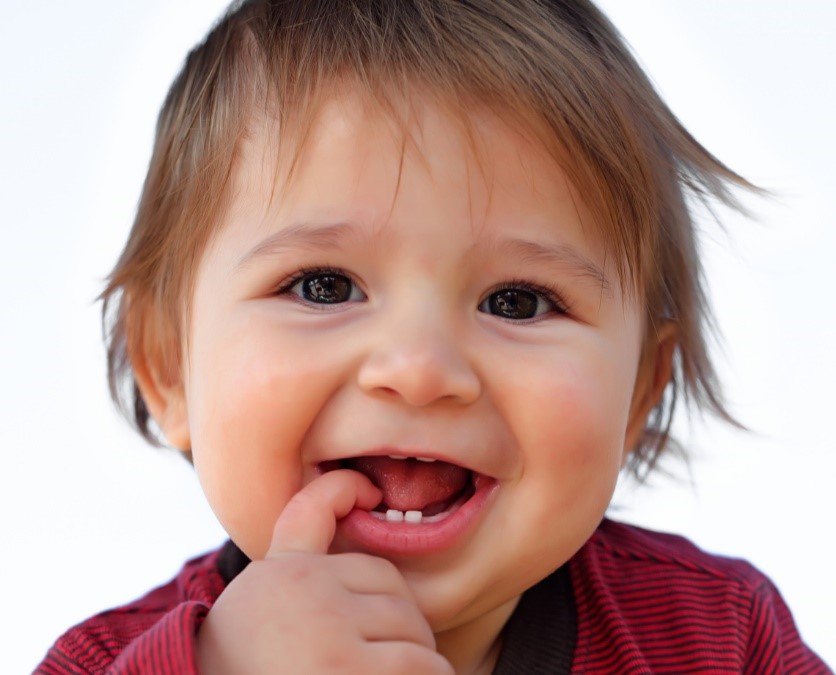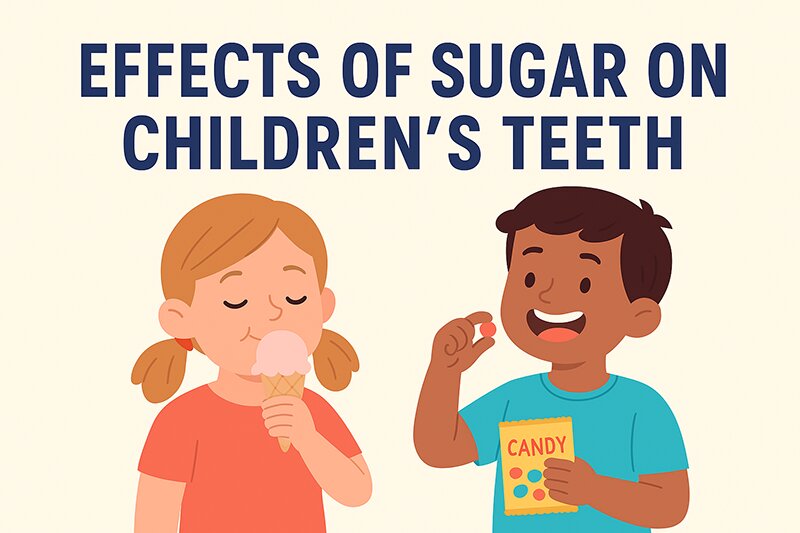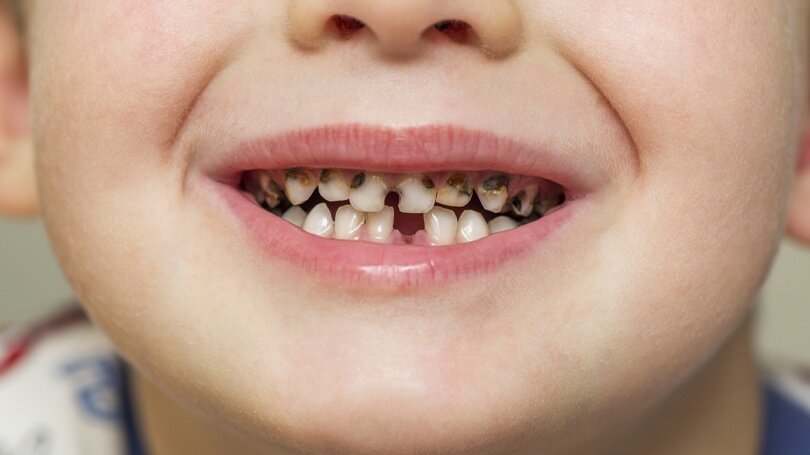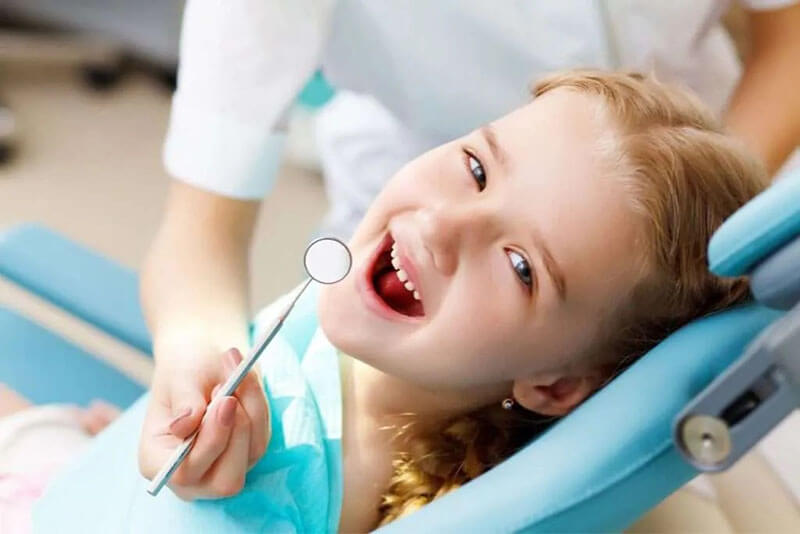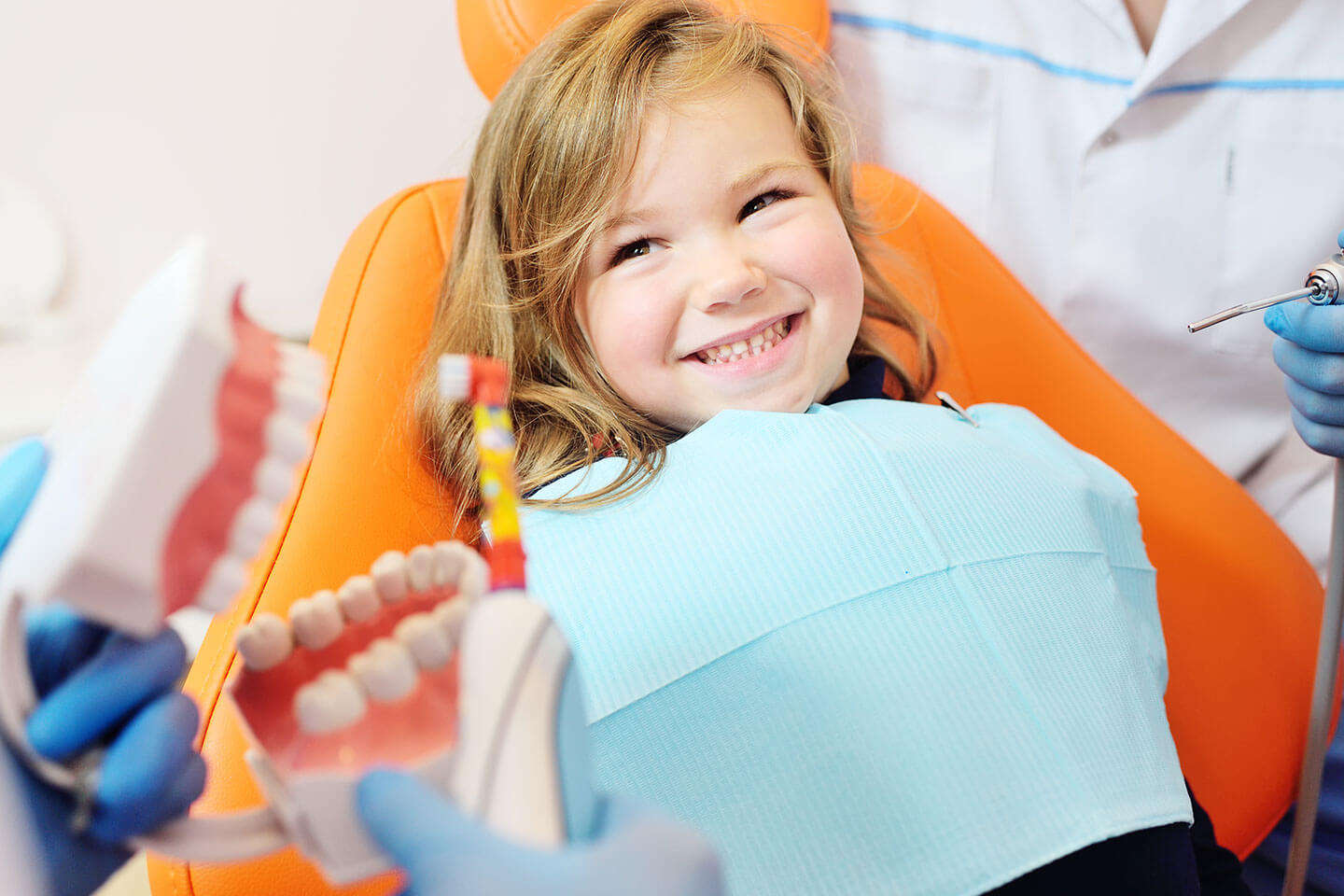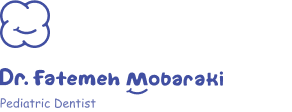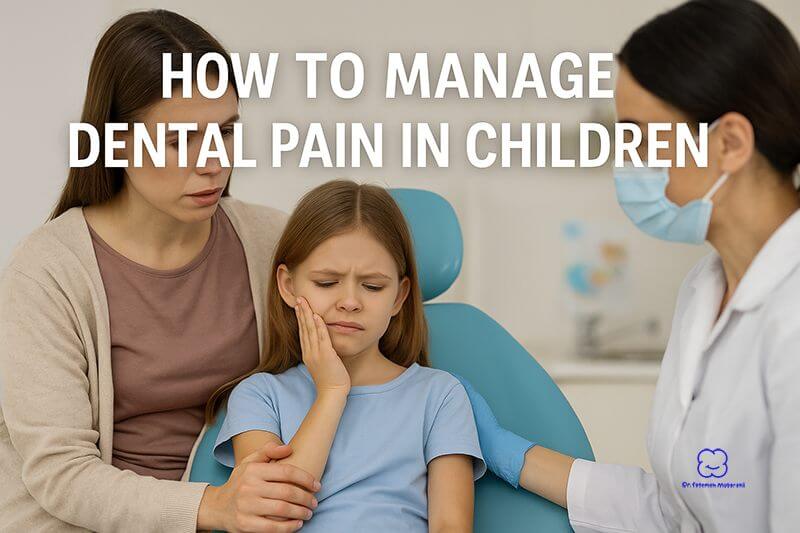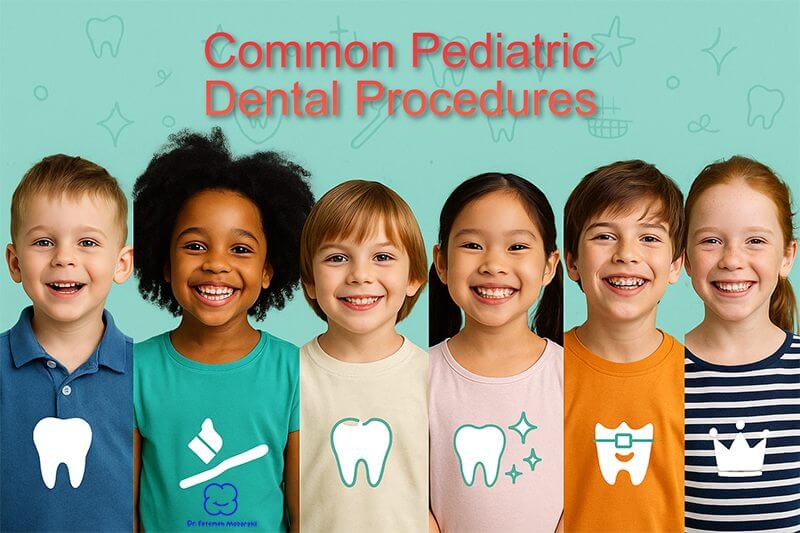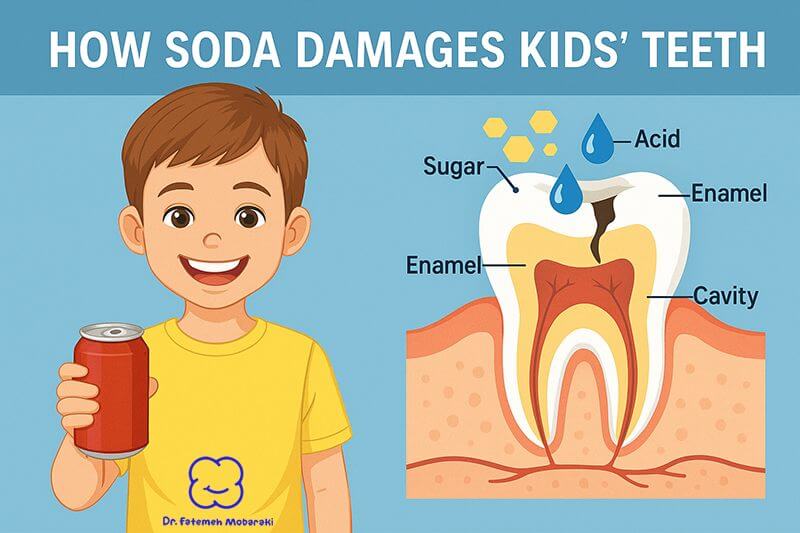The Importance of Caring for Baby Teeth
The primary teeth, which usually start to appear around 6 months of age and continue to grow until the age of 2 t 3, are referred to as baby teeth. These teeth play a crucial role in a child’s growth and nutrition, so caring for them is as important as caring for permanent teeth. Baby teeth begin to loosen and fall out around the age of 6, making way for permanent teeth
It is important to note that neglecting the care of baby teeth can lead to dental and orthodontic problems in children
Why are baby teeth important?
Many parents assume that since baby teeth gradually fall out between the ages of 6 and 12, they don’t require serious care, as the new permanent teeth will replace them. However, this assumption is incorrect
Baby teeth play a significant role in the formation of the jaw arch and oral cavity. They determine the path and formation of permanent teeth. The positioning of a child’s jaw muscles depends on the placement and growth of baby teeth. Baby teeth also play an important role in speaking, chewing, smiling, facial aesthetics, and a child’s self-confidence. It should be noted that if baby teeth are lost earlier than expected, permanent teeth may grow irregularly, crooked, or even impacted
Moreover, tooth decay in baby teeth affects the strength and condition of permanent teeth. The more we neglect the care of baby teeth and allow them to decay without proper treatment, the weaker and more susceptible the permanent teeth become to decay
How can we ensure our children have healthy baby teeth?
Since the formation of baby teeth begins in the prenatal period, the first step in promoting the oral health of children’s baby teeth is through maternal care. The health and nutrition of the mother have a significant impact on the quality of skeletal development, especially the development of the baby’s teeth. Therefore, the mother’s mental state, medications, and substances she consumes during pregnancy are highly important for the oral health of her child

The next aspect is the impact of maternal dental decay on the child. Because bacteria can be transmitted from the mother’s mouth to the child’s mouth, maternal dental decay plays a crucial role in the deterioration of the child’s teeth. Mothers who have healthy teeth are more likely to have children with healthier teeth as a mother mostly shows love and affection through oral contact and kissing
Therefore, it is essential to prioritize the care and maintenance of baby teeth to ensure the overall oral health and well-being of children
How to Clean Baby Teeth
During the breastfeeding period and before the appearance of the first teeth, it is sufficient to clean your baby’s gums with a clean, soft, and non-abrasive cloth after each feeding
With the appearance of the first teeth, you should start brushing them with a soft-bristled baby toothbrush. Brush your child’s teeth twice a day to keep the growing teeth healthy. You should brush your child’s teeth for them until the age of three and until your child learns to brush their teeth properly by themselves

Brushing should be done in a circular and gentle motion, and all surfaces of the teeth, both inner and outer, should be cleaned. Brushing too hard can cause damage to the teeth and gums
Until the age of two and a half, it is not necessary to use toothpaste, and cleaning the gums and teeth with water and a suitable toothbrush is sufficient
Between the ages of 3 and 5, when your child can put utensils in their mouth by themselves, it is a suitable time to start teaching them how to brush their teeth
At this age, prepare an appropriate toothbrush for your child and put a pea-sized amount of fluoride toothpaste on it. Teach them to brush the front, back, and top of their teeth with circular motions and move the toothbrush toward the gum line
The use of dental floss for baby teeth should also begin when the teeth have grown and are in contact with each other. There is no need to use dental floss as long as the gap between the baby teeth is large enough to be cleaned by a toothbrush
Until the age of 8 or 9, when the child cannot brush their teeth properly on their own, parents should accompany them and supervise their brushing
The Best Time to Take a Child to a Pediatric Dentist
A crucial point for promoting the health of baby teeth is visiting a pediatric dentist and having dental check-ups. The first dental check-up for children should take place at the age of 1, conducted by a pediatric dentist. This visit not only helps prevent tooth decay in baby teeth but also allows for early intervention and necessary repairs to prevent further decay and damage to other teeth. It is important to note that dental check-ups for children should be more frequent than those for adults since baby teeth are more prone to decay and damage
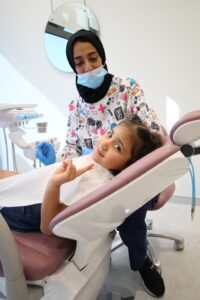
Dr. Fatemeh Ali Mobaraki is a general dentist in Dubai with over five years of experience who is an active member of the International Association of Pediatric Dentistry (IAPD). You can receive standard dental procedures and treatments for your child at Dr. Mobaraki’s clinic
How to Care for Baby Teeth
Avoid giving your child nighttime milk, especially powdered milk.
Practice good oral hygiene for your child and teach them the proper use of a toothbrush and toothpaste.
Avoid carbonated drinks.
Use suitable sugar substitutes for your child, such as figs, raisins, and dried berries, followed by mouth rinsing.
Conclusion
Taking timely measures to maintain the dental health of children is crucial for boosting their confidence, natural growth, and having strong and healthy permanent teeth. Dr. Fatemeh Ali Mobaraki is a general dentist in Dubai with over five years of experience who is an active member of the International Association of Pediatric Dentistry (IAPD)
Dr. Mobaraki treats children from infancy to adolescence using various treatment methods, including behavior management for children who may require extensive treatment and have a significant fear of dental procedures. If necessary, Dr. Mobaraki utilizes inhalation sedation (nitrous oxide, also known as the laughing gas) for non-cooperative children. Through parent education on treatment plans and methods, she ensures that her patients receive appropriate and quality dental care. You can contact her clinic in Dubai for high-quality and standardized dental services

